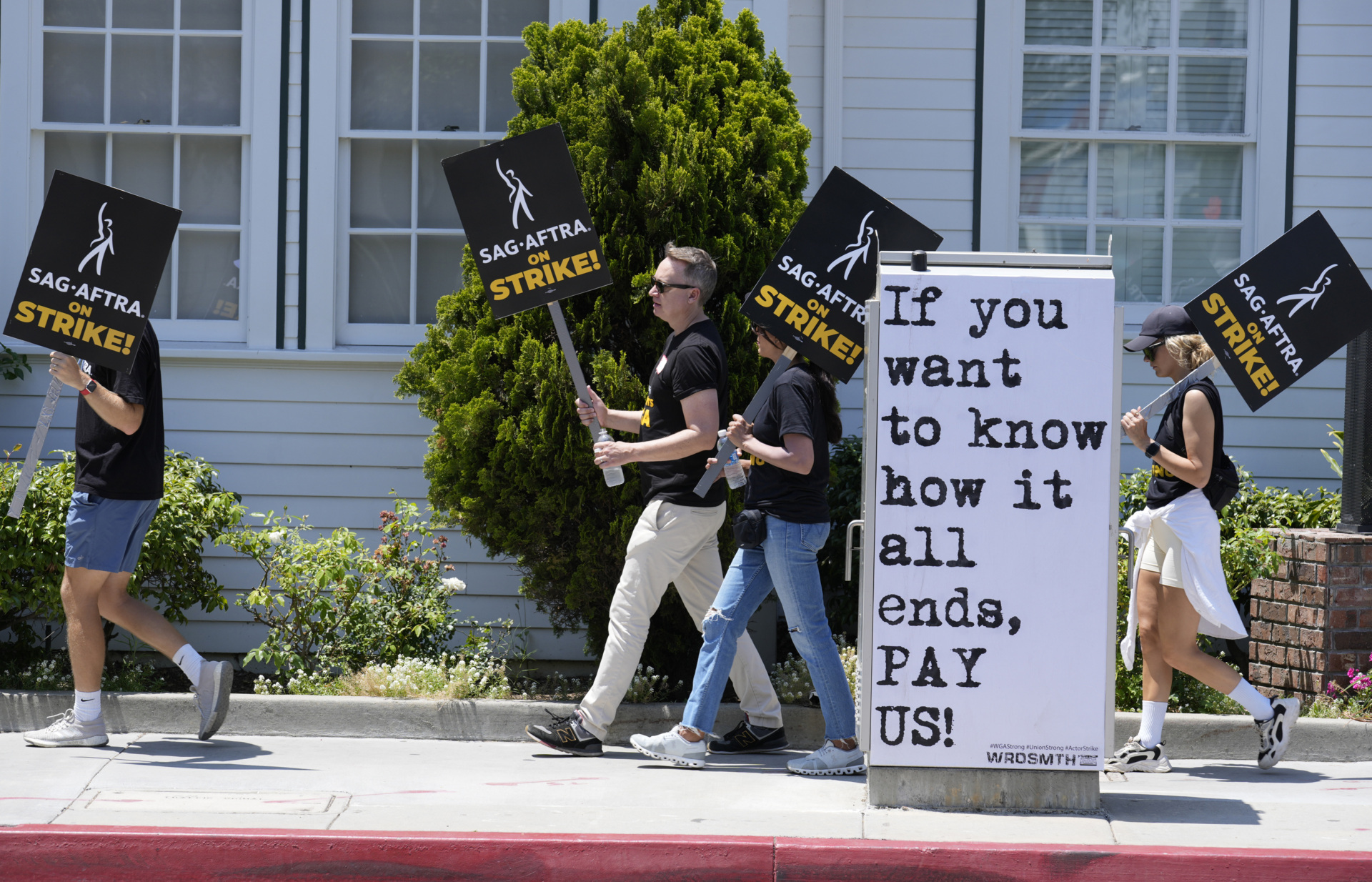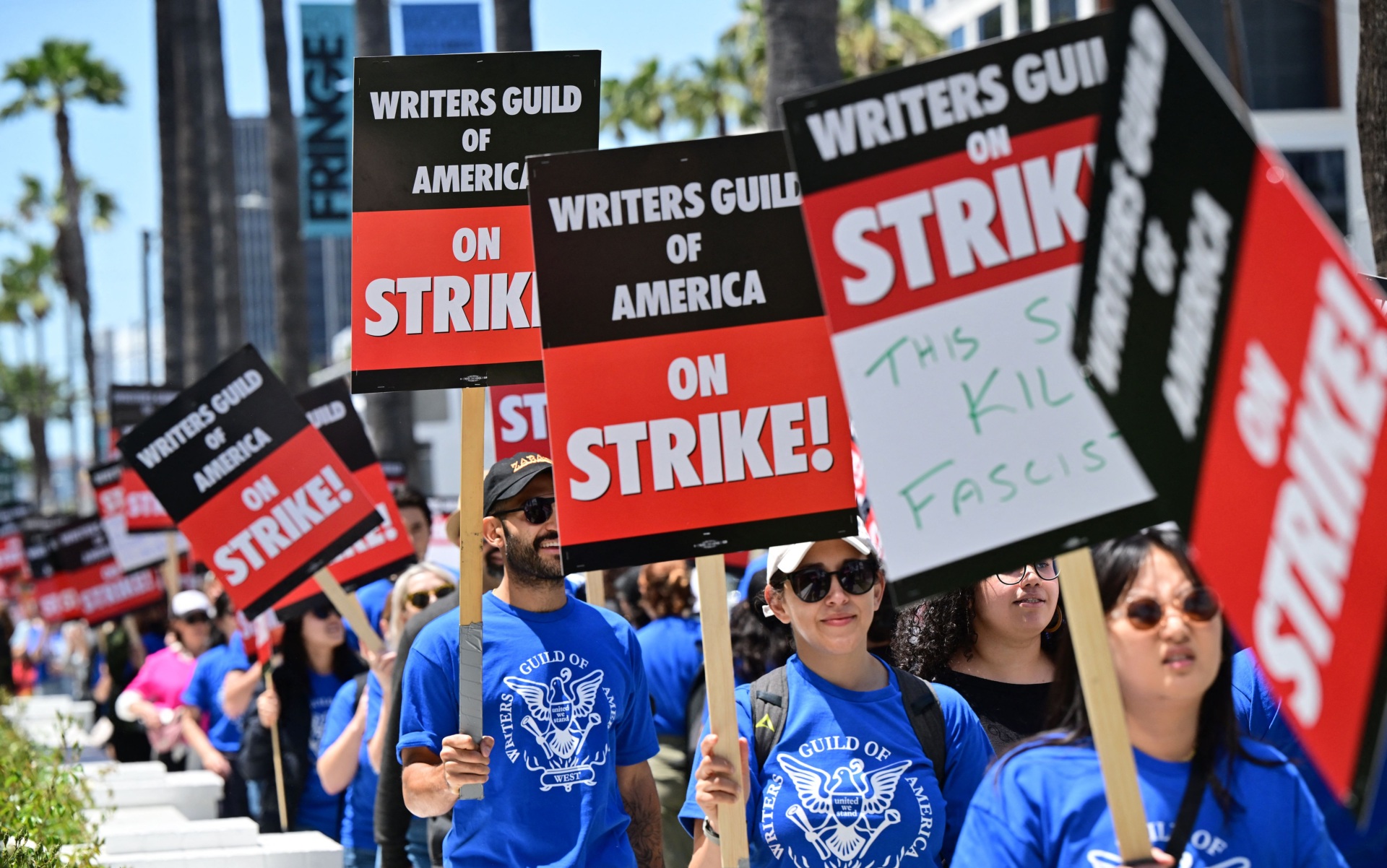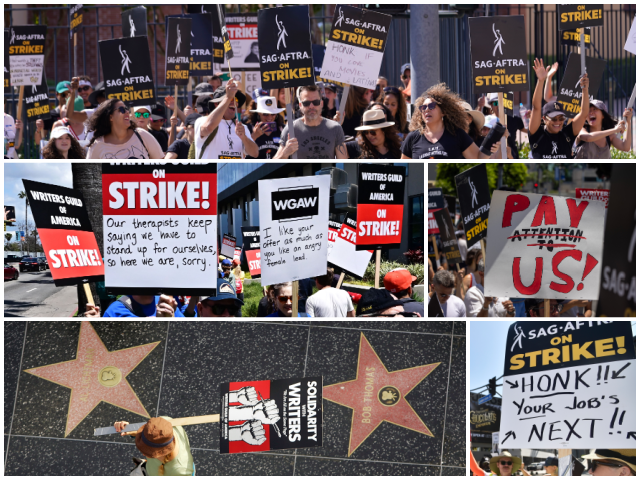Who is the biggest loser in the ongoing Hollywood labor strikes? The answer appears to be the people of California, with one estimate putting the local economy’s losses at $3 billion in the past 100 days — a figure that is almost certain to skyrocket as the historic strikes drag on with no end in sight.
The double strike by Hollywood writers and actors has taken a serious toll on California as TV and movie production has come to an almost complete halt, putting thousands of people out of work and hammering businesses that rely on local production activity to stay afloat.
Todd Holmes, a professor of entertainment industry management at Cal State Northridge, told CNBC that the Writers Guild of America strike, which began first, has cost the California economy $3 billion since it started a little more than 100 days ago.
He warned that if the strikes last until October, the economic cost could reach $5 billion.
The figures are based on a Milken Institute analysis from the 2007 WGA strike, which cost 37,700 jobs and bled $2.1 billion from the state’s economy. That strike lasted just under 100 days.
“A lot of different people are impacted surrounding the industry,” Holmes told CNBC. “And it’s causing them a lot of hardship.”
Nearly 20 percent of personal income in the Los Angeles area is earned by people who work in the entertainment industry or in industries that rely on Hollywood.

Actors on strike carry signs outside Amazon Studios in Culver City, California, on July 17, 2023. (AP Photo/Chris Pizzello)

Demonstrators picket in front of Netflix during a screenwriter’s strike in Hollywood, California, on May 2, 2023. (FREDERIC J. BROWN/AFP via Getty Images)
“The economic impact is even bigger because average compensation in the industry is considerably higher,” Lee Ohanian, a UCLA economics professor, told CNBC.
Hollywood studios have so far shown no indication that they are ready to concede to the demands of striking writers and actors, who have accused executives of stiffing them when it comes to compensation tied to streaming entertainment. The striking writers and actors also fear that their jobs will be replaced by artificial intelligence technology.
Follow David Ng on Twitter @HeyItsDavidNg. Have a tip? Contact me at dng@breitbart.com

COMMENTS
Please let us know if you're having issues with commenting.